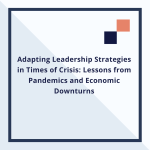Entrepreneurship is often associated with startups and solo ventures, but the principles of entrepreneurship can be incredibly valuable within established organizations as well. Known as “intrapreneurship,” this concept encourages employees to think like entrepreneurs—innovating, taking calculated risks, and driving growth from within the company. In today’s fast-paced business environment, fostering entrepreneurship within an organization is key to staying competitive and adaptable.
At its core, organizational entrepreneurship promotes a culture of creativity and innovation. Leaders who encourage this mindset empower their employees to propose new ideas, develop innovative products, and find creative solutions to challenges. This not only leads to more dynamic problem-solving but also helps companies stay ahead of market trends by continuously evolving their offerings and processes.
One of the primary benefits of promoting entrepreneurship within an organization is increased employee engagement. When employees feel their ideas are valued and have the potential to shape the company’s direction, they become more motivated and invested in the organization’s success. This sense of ownership drives performance, as employees are no longer just executing tasks—they are contributing to the bigger picture.
However, fostering entrepreneurship within an organization requires more than just a willingness to innovate. It requires leadership that is open to experimentation and, at times, failure. Leaders must create an environment where taking risks is encouraged, and employees are supported even when initiatives don’t go as planned. By doing so, organizations can tap into their employees' entrepreneurial spirit without the fear of negative repercussions.
Intrapreneurship doesn’t just benefit employees; it also positions companies to thrive in today’s constantly changing marketplace. By cultivating entrepreneurial thinking, organizations can stay agile, responsive, and prepared to seize new opportunities—ensuring long-term growth and sustainability.






